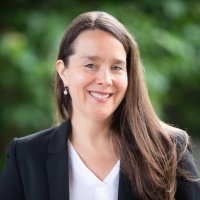The Future of Iraq: A Conversation with the Former Governor of Kirkuk
The Kurdistan Regional Government’s referendum on independence from Iraq did not go as planned. The disputed territory of Kirkuk was at the center of the conflict and was reclaimed by the central government last October.
Why did the Kurdish referendum fail? What role did Turkey and Iran play in these developments? How has the KRG’s autonomous status been impacted and how will this affect the future of Iraq?
The Wilson Center hosted former Governor of Kirkuk Dr. Najmaldin Karim to discuss these and other issues, including parliamentary elections scheduled for May.
Selected Quotes
Aaron David Miller
“The Kurdish question represents for the United States both a headline – in large part because of how important the Kurds are, both to stability in Syria and frankly…to U.S. policy – but also a trend line, because Kurdish nationalism unrequited will remain a vibrant and dynamic factor in any Middle Eastern equation, including with respect to the stability and future of Turkey, a NATO ally.”
Dr. Najmaldin Karim
“In the referendum, there’s one important point that people need to realize… We have made it clear that this referendum does not draw the borders of Kurdistan. This referendum [was] not to declare Kurdistan’s independence right away, but to get into negotiations about the issues that led us to go with a referendum. Maybe if we could resolve these issues, we could have done something else.”
“Unfortunately what happened after the referendum – the threats, foreign interference in internal affairs, particularly from Iraq’s eastern neighbor and northern neighbor – led to what happened on October 16 [and] 17. Since then, over 200,000 people have been displaced from Kirkuk. Kirkuk is nothing like it was before.”
“What we expected from the referendum was for people to go and express their opinion about what you want, as a Kurd, or a person living in Kurdistan… How do you feel about independence or remaining part of Iraq? That was really it, and we were not expecting to be attacked by tanks, by artillery, our people being forced to leave – all the problems that happened.”
“I think today, things are better than they were three months ago, or after October 16. The dialogue is going on, and like I said, until the elections, we will remain in a static situation. But I think that after that, we will see which way it goes. As far as the Kurdistan region, will it stay or not? Yes it will stay. It cannot turn back.”
“On oil issues, it’s not just the Kurds who are complaining. Every province that’s producing oil and energy – they are complaining, because they are not getting what the constitution says… These are the problems with running things in Iraq. The constitution is just there, but we really are not doing everything. I’m not saying it’s all Baghdad; in Kurdistan, there has been some points on that as well.”
“The Kurdistan election is supposed to be in September. Iraqi provincial elections will be in December. I think we will see signs of what happens in those elections after the Iraqi election for the parliament, because I think that if some of these parties get together [and decide] as far as what their position will be in Baghdad [and] who they will support in Baghdad… I think [those decisions] will shape the future relations and which way the provincial elections will go.”
Introduction

Keynote Speaker
Moderator

Research Professor of International Affairs and Acting Director of the Foreign Area Officers Program, George Washington University
Hosted By

Middle East Program
The Wilson Center’s Middle East Program serves as a crucial resource for the policymaking community and beyond, providing analyses and research that helps inform US foreign policymaking, stimulates public debate, and expands knowledge about issues in the wider Middle East and North Africa (MENA) region. Read more
